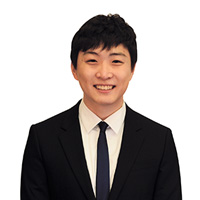
Dating apps that bar people from signing up based on appearance, education and wealth are a growing phenomenon in Korea.
In order to join Amanda, one of the best-known dating apps in Korea, the applicant needs to receive an average score of three or higher out of five from 20 members of the app. The name “Amanda” is wordplay for the Korean meaning of “not meeting anyone.”
“We understand that there can be controversy over the nature of our app. At first, the admission system was aimed at providing entertainment as well as raising the ‘quality’ of the members. Now, there is less focus on appearance as a criterion and more focus on attractiveness. We provide tips on how to raise individual scores,” said Chae Kyung-jin, marketing head of Nextmatch Corporation, which developed the app.
“With the detailed application, we are trying to show not only appearance but allow lifestyle, background, personal stories and personalities to be reflected in the scores,” said Chae.
Another dating app that looks at an applicant’s financial status is drawing criticism as well.
GoldSpoon, derived from the Korean term to refer to people from wealthy families, only allows men who meet certain markers of wealth to join the app. They include owning an imported car, having a house in the three most expensive districts in Seoul, earning an annual salary over 70 million won ($57,000) or having a well-paying professional job. For women applicants, criteria include having a professional job or an appearance that passes the judgment of members of the app.
“The acceptance rate is around 20 percent for people applying to our app. We are trying to satisfy the need of people looking for a serious relationship that is reliable. By having this application process, individuals can be certified to some extent because they provide that much more personal information,” said the CEO of GoldSpoon, who wished only to be identified by the surname Chun, in a phone interview with The Korea Herald.
“We are not trying to intentionally cause gender, social or economic divide. We found that Korean women looking to marry tend to look at the economic background of males and thought to satisfy the need with our service when we first started,” said Chun. “We do get quite a bit of complaints from people who do not make the cut. As an app, having more users means more revenue so we want people to join, but being exclusive is our key element.”
Educational background was another factor that barred people from entering dating apps. Dating apps SKY People and Diamatch required applicants to verify having attended or graduated from prestigious universities or have a job at a major company.
“We do get complaints asking why only certain people can be in the app by email or comments on app stores, since we deny over 60 percent of the applicants. But we can’t satisfy everyone,” said Yu Sin-sang, CEO of Conbus Inc., which owns four dating apps, including Diamatch.
“The key element is trust. I’m not saying that people with high educational backgrounds are more trustworthy. It’s that men have to give additional personal information about themselves to get into the app which makes them more trustworthy to women. To show that, dating apps tend to have around 10-to-1 male-to-female ratio. Our app has 2.8 to 1. Also, 40 percent of the women in our app purchase features, where less than 5 percent of women do in other dating apps,” said Yu.
When asked why there were gender differences in the criteria to apply, Yu said that women are more hesitant to meet people online than men in reality, and the app reflects that.
“By having multiple criteria for men, women feel more safe,” said Yu.
By Lim Jang-won (ljw@heraldcorp.com)
-
Articles by Lim Jang-won








![[Herald Interview] How Gopizza got big in India](http://res.heraldm.com/phpwas/restmb_idxmake.php?idx=644&simg=/content/image/2024/11/20/20241120050057_0.jpg&u=20241120164556)
![[KH Explains] Dissecting Hyundai Motor's lobbying in US](http://res.heraldm.com/phpwas/restmb_idxmake.php?idx=644&simg=/content/image/2024/11/20/20241120050034_0.jpg&u=)








